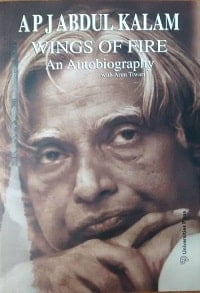The main idea behind creating Taboo Talks a public website is to let people feel free to share their experiences, ideas, views or content on topics they consider taboo.
INTRODUCTION

- Late. Dr. APJ Abdul Kalam was a famous and respected Indian scientist (15 October 1931–27 July 2015) who became the 11th President of India (2002-2007). He was born and raised in Rameswaram, Tamil Nadu, and studied Aerospace engineering at Madras Institute of Technology.
- He spent 40 years as a scientist and science administrator, mainly at the Defence Research and Development Organisation (DRDO) and Indian Space Research Organization (ISRO), and was involved in India’s civilian space program and military missile development. He thus came to be known as the Missile Man of India for his work on the development of ballistic missiles (Agni and Prithvi) and launch vehicle technology (PSLV and SLV-III).
- He also played an important role in organisational, technical, and political role in India’s Pokhran-Il nuclear tests in 1998, the first since the original nuclear test by India in 1974, also he was a recipient of India’s three highest civilian awards – Padma Bhushan, Padma Vibhushan, and Bharat Ratna. Wings of Fire is an autobiography of APJ Abdul Kalam, jointly written by DR. Arun Kumar Tiwari and DR. APJ Abdul Kalam. It covers Dr. Kalam’s life before he became President of India.
ABOUT THE AUTHOR
- Dr. APJ Abdul Kalam and Arun Tiwari jointly written this biography.
- DR. Arun Kumar Tiwari was born 10 February 1955, age 66 years is an Indian missile scientist, author, and professor. Born in Meerut, Uttar Pradesh, he had completed his master’s in mechanical engineering from GB Pant University for Agriculture & Technology, then Dr. Tiwari joined Defence Research & Development Organisation (DRDO) in 1982 as a missile scientist.
- He spent 15 years involved in India’s military missile development efforts. He developed India’s first Titanium air bottle used in ‘Trishul’ and ‘Akash’ missiles and designed airframes for both the missiles.
- He set up the first link of the project and established the Pan-Africa e-network of Telecommunications Consultants India Ltd (TCIL) that now connects Universities and hospitals across the African continents with their Indian counterparts. From 2002 to 2007, Tiwari was a member of the advisory team to the President of India, Dr. APJ Abdul Kalam.
- Presently is the Secretary of Care Foundation and the Platinum Jubilee Mentor of CSIR–IICT.
CRITICAL ANALYSIS
- Wings of Fire is an autobiography of APJ Abdul Kalam, covering his early life and his work in Indian space research and missile programs. This book describes the story of a boy from a humble background who became an important personality in Indian space research and Indian missile programs and later became the President of India.
- Dr. Kalam was born in Rameswaram in a southern religious town in Tamilnadu. The initial chapters provide an interesting idea of religious harmony which existed before India’s partition.
- The story begins with Kalam as a boy around 1930 in the village of Rameswaram where he lived with his parents along with four brothers and one sister. In this book, the author describes how the role of family, relatives, friends, and society contributes to the life of Dr. Kalam. Dr. Kalam describes his village where everyone lives in harmony any kind of discrimination was unknown. A passage that shows the closeness they had: “The high priest of Rameswaram temple, Pakshi Lakshmana Sastry, was a very close friend of my father’s. One of the most vivid memories of my early childhood is of the two men, each in his traditional attire, discussing spiritual matters.”
- DR. Kalam in his younger years wanted to become an officer in the Indian air force. However, he could not clear the AFSSB interview. He met Swami Sivananda after this failure and I found his words to Kalam interesting which are quoted below.
- “Accept your destiny and go ahead with your life. You are not destined to become an Air Force pilot. What you are destined to become is not revealed now but it is predetermined. Forget this failure, as it was essential to lead you to your destined path. Search, instead, for the true purpose of your existence. Become one with yourself, my son! Surrender yourself to the wish of God”.
- Kalam then takes us through life in his university how the different teachers and professors shaped him. Followed by his first job interviews and job experiences. He describes each of his projects in great detail. And as he describes them, the humility and politeness in his nature are reflected. He not only remembers which teammates were working on which parts of the projects, but also their difficulties and achievements. Also, you will find him crediting all the success to his team members and his mentors this shows how much humble and down-to-earth Dr. APJ Abdul Kalam was.
- . In the book, we learn how Kalam started his career in Aeronautical Development Establishment (ADE) and was involved in the design of a hovercraft. Later, he moved to Indian Space Research, which was the baby of Dr. Vikram Sarabhai. In 1963, Kalam went to NASA facility in Maryland (USA) as part of a training program on sounding rocket launching techniques.
- This book is not only about the achievements of his projects like Nandi, SLV, Prithvi, Agni, etc., but also about the failures in the same. For Dr. Kalam, his work was larger than his life. We can see it from the poem which he wrote after the successful launch of Agni.
- “Do not look at Agni as an entity directed upward to deter the ominous or exhibit your might, It is the fire in the heart of an Indian. Do not even give it the form of a missile, as it clings to the burning pride of this nation and thus is bright”.
- One thing that stands out throughout the book is Kalam’s optimistic thinking. He achieved many high-ranking positions in various organisations, but he stayed humble throughout his life. The secret to his success seems to be his ability to ignore negative things around him. The book also gives a clue to his popularity in India. Dr. Kalam was a simple, secular, inspiring well-being respected by many with no haters or oppositions.
RECOMMENDATION
- From a student and human point of view, this book perfectly describes how failures and positivity can shape a person in his life, and how successful you become in life. Staying humble in every part of life is important. This book also describes how a leader should act during failure and success.
- This book truly describes DR. APJ Abdul Kalam from being a student to a scientist and then the most respected President of India.
CONCLUSION
- I conclude by admitting that in this book Wings of Fire has given a perfect example of how to become a prominent leader in life and to stay humble all the time. The secret to success is to ignore negative things around us and do our best in our life.
- The book takes you through several journeys of Dr. APJ Abdul Kalam and to do introspection every time during success and failure as well.
- The book of a few hundred pages may leave lasting impressions on its readers and has truly spread hope and joy to millions of readers.
- I would like to end this review with a beautiful poem written by Dr. APJ Abdul Kalam,
“I am a well in this great land
Looking at its millions of boys and girls
To draw from me
The inexhaustible divinity
And spread His grace everywhere
As does the water drawn from a well”.







Thɑnk you for the auspіϲious writeup. It if truth be told was
once a entertainment account it. Glance complicated to far introduced agreeabⅼe from you!
However, hoԝ coսld we communicate?
send us an email at contact@tabootalks.in